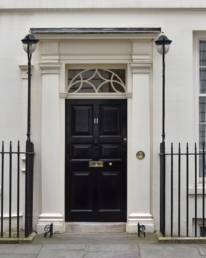With one eye on a forthcoming general election, the chancellor has announced a Budget aimed at generating long-term growth, with “more investment, more jobs, better public services and lower taxes”.
While the headlines will inevitably focus on Jeremy Hunt’s cut in National Insurance contributions (NICs), many less headline-grabbing messages will affect millions of families and businesses.
Read on to find out who were the winners and losers from the 2024 Spring Budget.
Winners
Working people
The chancellor said that his Budget gave “much-needed help in challenging times”, adding “if we want to encourage hard work, we should let people keep as much of their own money as possible”.
Calling NICs a “penalty on work”, Hunt announced a cut in Class 1 NICs, from 10% to 8% from 6 April 2024. These cuts follow a similar reduction in the rate of NICs announced in the 2023 Autumn Statement.
The chancellor says that these cuts, in conjunction with the reductions announced in the 2023 Autumn Statement, would mean the average worker on £35,400 would benefit from a tax cut of more than £900 a year.
He also announced that, instead of falling from 9% to 8% as previously announced, Class 4 self-employed NICs would fall from 9% to 6% from 6 April 2024. This is in addition to the removal of the requirement to pay Class 2 NICs from the same date.
He added that 2 million self-employed people would benefit, with the average self-employed person earning £28,000 seeing a tax cut of around £650 a year.
The Treasury say that this means UK taxpayers face the lowest combined basic rate of Income Tax and NICs since the introduction of the modern structure of National Insurance in 1975.
Parents earning Child Benefit
The chancellor highlighted the “unfairness” in the current Child Benefit system that means a household with two parents each earning £49,000 a year will receive Child Benefit in full, while a household earning less overall but with one parent earning more than £50,000 will see some or all of the benefit withdrawn.
Consequently, he announced a plan to move the High Income Child Benefit Charge to a “household” system from April 2026.
In the interim, from April 2024, the High Income Child Benefit Charge threshold will rise from £50,000 to £60,000 while the top of the taper will rise to £80,000. This means that the full amount of Child Benefit will not be withdrawn until individuals earn £80,000 or more.
The government estimates that nearly 500,000 families will gain an average of £1,260 in 2024/25 as a result.
The hospitality industry and their customers
In a move designed for “backing the Great British pub”, the chancellor has extended the freeze on alcohol duty. The freeze was due to end in August 2024 but has been extended to February 2025, benefiting 38,000 pubs across the UK.
The Treasury says that this results in 2p less duty on an average pint of beer than if the planned increase had gone ahead.
This measure will cut costs for breweries, distilleries, restaurants, nightclubs, pubs, and bars.
Motorists
The chancellor argued that lots of families and sole traders depend on their cars and so wanted to continue supporting motorists.
Consequently, he maintained the temporary 5p cut in fuel duty and froze the duty for another 12 months.
Hunt said that this would save the average car driver £50 in 2024/25.
Small businesses
In a boost to small businesses, Hunt announced that, from 1 April 2024, the VAT threshold would increase from £85,000 to £90,000 – the first increase in seven years.
ISA and National Savings and Investments savers
To encourage investment in small British businesses, the chancellor announced his intention to launch a new “UK ISA”.
This will enable savers to invest an additional £5,000 in a tax-efficient wrapper, increasing the total ISA subscription limit to £25,000 – assuming these additional monies are invested exclusively in UK firms.
The government will consult on the details
The chancellor also announced that National Savings & Investments (NS&I) will launch a British Savings Bonds product that will offer consumers a guaranteed interest rate, fixed for three years.
This new NS&I product will be brought on sale in early April 2024.
Want to understand what the Autumn Budget could mean for your portfolio?
Visit our dedicated Autumn Budget Hub for the latest updates and insights.
Creative industries
From film to theatre and music to art, UK creative excellence is unmatched.
To support the UK’s creative industries, the chancellor announced a further £1 billion package of additional tax relief over the next five years, to boost inward investment and attract production companies from around the world.
Hunt also confirmed £26.4 million of support for the globally renowned National Theatre.
Pensioners
The Spring Budget also committed to supporting pensioner incomes by maintaining the State Pension “triple lock”.
In 2024/25, the Treasury say that the full yearly amount of the basic State Pension will be £3,700 higher, in cash terms, than in 2010.
Sellers of second homes
Capital Gains Tax (CGT) is often due when an individual sells a second home – such as a buy-to-let property or holiday home.
In a move designed to increase the number of transactions, and consequently increase the revenue from the tax, the chancellor announced he would reduce the higher rate of property CGT from 28% to 24%.
The lower rate will remain at 18% for any gains that fall within an individual’s basic-rate band.
Losers
Vapers and smokers
In an attempt to discourage non-smokers from taking up vaping, and to increase revenue for the NHS, the chancellor announced a new duty on vaping.
The Treasury says this will raise £445 million in 2028/29.
There will also be a one-off tobacco duty increase of £2 per 100 cigarettes or 50 grams of tobacco from 1 October 2026 to maintain the current financial incentive to choose vaping over smoking. The government say this will raise a further £170 million in 2028/29.
Non-economy airline passengers
The chancellor announced that rates for individuals flying premium economy, business, and first class and for private jet passengers will increase by forecast Retail Prices Index (RPI) and will be further adjusted for recent high inflation to help maintain their real-terms value.
Some “non-doms”
In a move borrowed from Labour, the chancellor announced the abolition of the “remittance basis” of taxation for non-UK domiciled individuals (“non-doms”) and a replacement simpler residence-based regime.
Individuals who opt into the new regime will not pay UK tax on any foreign income and gains arising in their first four years of tax residence, provided they have been non-tax resident for the last 10 years.
This new regime will commence on 6 April 2025 and applies UK-wide – and transitional arrangements will apply.
The Treasury says that this measure will raise £2.7 billion in the year 2028/29.
Owners of holiday lets
The chancellor said that the current tax regime creates distortion, meaning there are not enough properties available for long-term rental.
Consequently, he intends to abolish the Furnished Holiday Lettings (FHL) tax regime from 6 April 2025, meaning short-term and long-term lets will be treated the same for tax purposes.
Anyone subject to fiscal drag
Freezing tax thresholds increases the amount of tax that individuals and businesses pay without nominal tax rates actually increasing. Called “fiscal drag”, this results in additional revenue to the government as more taxpayers are “dragged” into paying tax, or into paying tax at a higher rate.
Freezes in a range of thresholds mean that millions of individuals and businesses will face “fiscal drag” in the coming years.
For example, while the increase in the threshold at which small businesses and self-employed people have to register for VAT will be welcome to many businesses, the fact that the threshold had been frozen for seven years means that more businesses will likely have been forced to register for VAT than if the threshold had risen each year in line with the cost of living.
Similarly, freezes to the Income Tax Personal Allowance and thresholds mean more people will either start to pay tax, or pay more tax at a higher rate, than if these thresholds had risen in line with inflation.
Get in touch
If you’d like an independent financial adviser, please get in touch by calling 0800 915 0000, or alternatively use our contact form here. We can help you build an investment strategy to achieve your long-term goals, adapting to changes as and when they happen.
Please note, all information is from the Spring Budget documents on this page.
The content of this Spring Budget summary is intended for general information purposes only. Please don’t rely on it in its entirety or deem it to be or constitute advice.
While we believe this interpretation to be correct, it can’t be guaranteed and we can’t accept any responsibility for any action taken or refrained from being taken as a result of the information contained within this summary. Please obtain professional advice from an IFA before entering into or altering any new arrangement.
Please note, all information is from the Spring Budget documents on this page. The content of this Spring Budget summary is intended for general information purposes only. Please don’t rely on it in its entirety or deem it to be or constitute advice.
Disclaimer
The information within this article was correct at the time of publishing, but laws and tax rules are subject to change. Your circumstances and where you live in the UK may also have an impact on your tax treatment.
Related Posts
3 February 2026
Read More

6 January 2026
Read More

5 January 2026
Read More

26 November 2025
Read More



